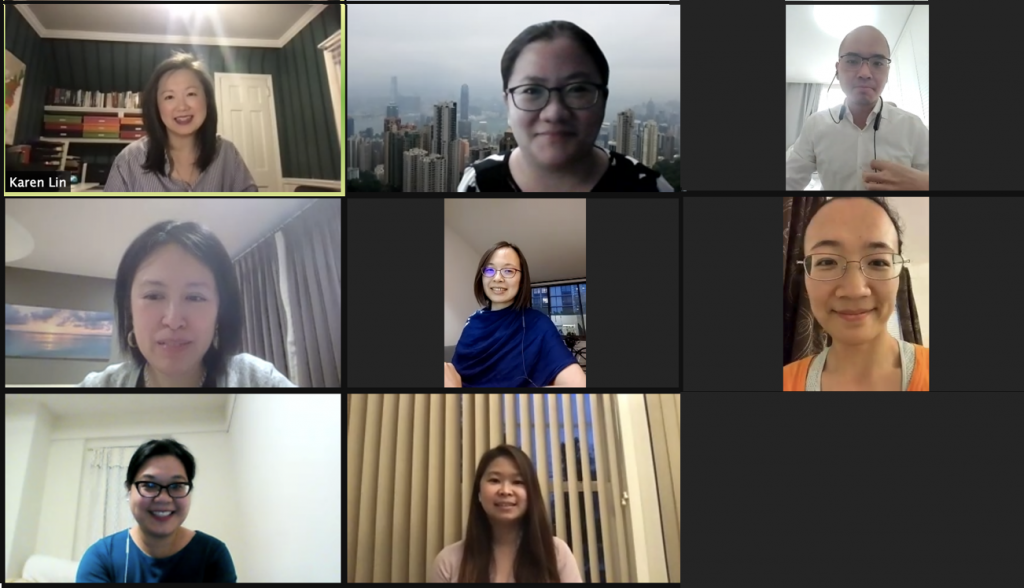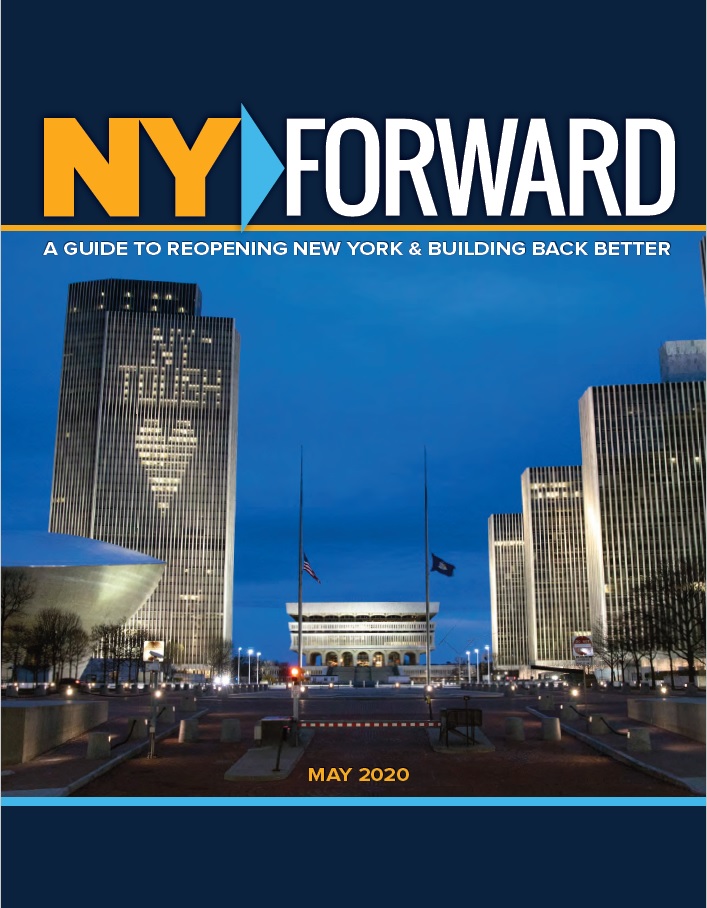
For Immediate Release
*Press Release*
NEW REPORT HIGHLIGHTS OPPORTUNITIES FOR NEW YORK STATE TO EXPAND IMMIGRANT HEALTH CARE COVERAGE
New York Must Address Eligibility, Documentation, Outreach, and Oversight Barriers to Ensure Access to Health Care for Immigrant New Yorkers
February 6, 2013 (New York) – As New York State works to implement the Affordable Care Act and establish its Health Benefit Exchange, key opportunities exist to expand immigrants’ access to health reform. A report released today by the New York Immigration Coalition (NYIC), the New York State Health Foundation (NYSHealth), and Empire Justice Center urges New York State policymakers to preserve and promote immigrants’ access to health care coverage and offers recommendations to mitigate disparities between citizens and noncitizens in health care.
The report, “Maximizing Health Care Reform for New York’s Immigrants,” written by the NYIC in conjunction with Empire Justice Center, highlights opportunities for New York to address key factors that can ameliorate or impede immigrants’ access to health care coverage, including eligibility classifications; documentation and verification policies and practices; marketing and outreach; and oversight and monitoring. The report also includes recommendations for ensuring access to care for those immigrants who will remain uninsured even after health reform is implemented.
Federal health reform will expand coverage opportunities and increase access to care for many of New York State’s uninsured residents, but there are gaps in federal Affordable Care Act provisions regarding the inclusion of immigrants. For example, lawful immigrants will continue to face federal restrictions on enrolling in public health insurance programs, and undocumented immigrants are barred from most types of public coverage and from purchasing coverage in new Health Benefit Exchanges. The report offers recommendations for how New York State can address the health care needs of those left out of federal reform by making policy choices at the state level that expand access to health care coverage for immigrants, as well as by strengthening its safety net system.
“The full participation of immigrants in the Exchange is critical to meeting the goals of health reform,” said Chung-Wha Hong, executive director of the New York Immigration Coalition. “It will be up to New York State to craft an Exchange and related public health programs that are responsive the needs of immigrant New Yorkers. This is the chance for New York to create a health program that serves as a national model for reducing health disparities.”


[Photo left to right] Chung-Wha Hong, executive director of the New York Immigration Coalition and Jackie Vimo, director of advocacy at the New York Immigration Coalition introduce the report, “Maximizing Health Care Reform for New York’s Immigrants.”
New York State’s noncitizens (both lawfully present and undocumented) are three times as likely as citizens to lack health insurance coverage. Impediments to coverage include working for small businesses that are less likely to offer health insurance, having misconceptions about the effect of documentation and public health benefits on their immigration status, and encountering language barriers in enrollment and retention process.
“With implementation of the health reform law, we have an unprecedented opportunity to extend health insurance coverage to more than 1.2 million New Yorkers,” said James R. Knickman, president and CEO of NYSHealth. “Our success in achieving an affordable, equitable health care system that covers as many people as possible is dependent largely on how well the State implements the Affordable Care Act, and how well it serves our immigrant population.”

[Photo above] James R. Knickman, president and chief executive officer of the New York State Health Foundation speaks about the report’s recommendations.
“The health care exchange opens up an exciting new avenue for New York’s immigrants to access affordable health care,” said Barbara Weiner, senior staff attorney at Empire Justice Center, a contributing author to the report. “Nevertheless, New York must continue in its praiseworthy tradition of providing help to those whom the federal government has continued to leave out in the cold. The young people who are being granted deferred action because they were brought to the U.S. as young children comprise one such group. Current federal policy excludes them from benefits under both Medicaid and the Exchange.”

[Photo above] Barbara Weiner, senior staff attorney of Empire Justice Center gives more details on the report.
Immigrant community-based organizations (CBOs), such as the New York Immigration Coalition’s 200 member groups, are immigrants’ main source of information and assistance in navigating the health care system. Incorporating these CBOs into outreach and enrollment efforts will be crucial for reaching immigrant communities.
“With the help of the New York Immigration Coalition, KCS has been able to give presentations to uninsured seniors in our community about their options and help them through the murky public healthcare waters,” said Sandra Oh, community health educator, The Korean Community Services of Metropolitan New York, Inc.
Maha Attieh, health program manager at the Arab-American Family Support Center said, “The uninsured, underserved and low income people in my community reach out to me with many questions that I can’t answer. Due to language barriers, they don’t know how to navigate the system. I hope the new exchange program is affordable and easy to access for the Arab American community. We want our community to be insured and have access to health care to have a healthy life.”

[Photo above] Maha Attieh, health program manager at the Arab-American Family Support Center speaks about the affect the new exchange program will have on immigrants in her community.
“We see hope that there will be rational and effective healthcare for New York immigrants through the soon to be implemented New York State Health Benefits Exchange,” said Siobhan Dennehy, executive director of Emerald Isle Immigration Services. “It is critically important that we all continue to work toward ending health care disparities which take such toll on the health of uninsured immigrants. We see hope that there will be no fear or confusion when uninsured immigrants seek health care under the NY State Health Benefits Exchange.”
The report made several key recommendations, including:
- Shape the State’s definition of “lawfully present” to ensure the broadest possible inclusion of immigrants under the ACA. Currently, immigration definitions and eligibility for public benefits vary by program.
- Develop mechanisms for verifying citizenship and immigration status while protecting confidentiality and due process. Enrollment into public insurance programs and the exchange will require verification and documentation of status. The State can streamline the verification requirements under ACA with existing programs while maintaining privacy.
- Conduct tailored, active outreach and marketing to engage immigrants and enroll them in health insurance coverage programs. Given the tremendous racial, ethnic, cultural, and language diversity of the State’s residents, a range of tailored approaches to outreach and enrollment activities will be needed to meet the unique needs of multiple immigrant communities.
- Secure the safety net and charity care programs. Undocumented immigrants and some others will remain uninsured even after health reform is implemented, so the safety-net system of care will remain important to New York State’s health care infrastructure.
Copies of the report are available by clicking HERE and upon request.
# # #
The New York Immigration Coalition is an umbrella policy and advocacy organization for nearly 200 groups in New York State that work with immigrants and refugees. The NYIC aims to achieve a fairer and more just society that values the contributions of immigrants and extends opportunity to all by promoting immigrants’ full civic participation, fosters their leadership, and provides a unified voice and a vehicle for collective action for New York’s diverse immigrant communities.
The New York State Health Foundation (NYSHealth) is a private, statewide foundation dedicated to improving the health of all New Yorkers, especially the most vulnerable. Today, NYSHealth concentrates its work in three strategic priority areas: expanding health care coverage; improving diabetes prevention; and advancing primary care. The Foundation is committed to making grants, informing health care policy and practice, spreading effective programs to improve the health system, serving as a neutral convener of health leaders across the State, and providing technical assistance to our grantees and partners.
Empire Justice Center is a statewide, multi-issue, multi-strategy public interest law firm focused on changing the “systems” within which poor and low income families live. With a focus on poverty law, Empire Justice undertakes research and training, acts as an informational clearinghouse, and provides litigation backup to local legal services programs and community based organizations. As an advocacy organization, we engage in legislative and administrative advocacy on behalf of those impacted by poverty and discrimination. As a non-profit law firm, we provide legal assistance to those in need and undertake impact litigation in order to protect and defend the rights of disenfranchised New Yorkers.









